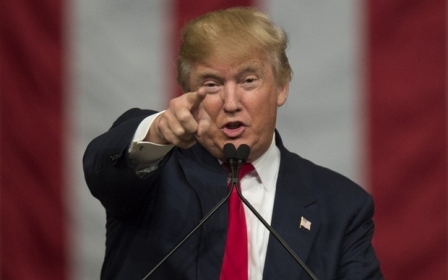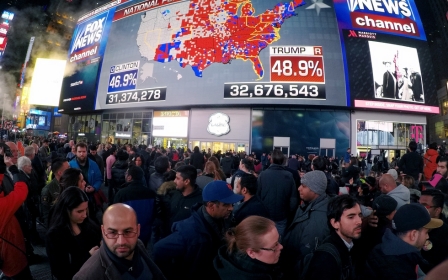Trump victory spurs several electors to vote for alternative candidates
Seven electoral college voters will defy their party and the election result of their state to send a message against President-elect Donald Trump. The number is unprecedented in modern US history.
US presidential elections are not won by popular vote. They are won in the electoral college, where states based on their population assign delegates who vote for the presidential candidates. Each political party chooses potential electors before election day. Then those delegates from the party of the candidate who wins the state's popular vote are chosen as official electors.
While the electors are expected to vote according to the results, there is no federal law that requires them to vote any specific way. Faithless electors are voters who refuse to vote for the candidate who won in their state.
Political parties may get the electors to vow to vote for their nominee. Some states have also imposed fines on electoral college voters who do not follow the outcome of the election. Others states disqualify faithless electors.
All seven faithless electors this year happen to hail from Democratic states, who would normally cast their votes for Hillary Clinton. They have said they will break with their party affiliation and name an alternative Republican to Trump to set an example for other electoral college voters. Three of the faithless electors come from the state of Washington, while the other four are from Colorado. Based on their population, Washington and Colorado are given 12 and nine electors, respectively.
There are 538 electors in total; 270 votes are needed to clinch the presidency.
Art Sisneros, a Republican from Texas, resigned as an elector, citing religious reasons that prevent him from voting for Trump.
"He is not someone who would rule justly or wisely," Sisneros told the Guardian of Trump. "His track record shows that he is a man of coveting and self-serving – a liar and a cheat should not hold that position."
Bret Chiafalo, an electoral college voter from the state of Washington, co-founded the Hamilton Electors, who cite Alexander Hamilton's views in urging fellow electors to vote against Trump.
"The process of the Electoral College affords a moral certainty, that the office of the President will never fall to the lot of any man who is not in an eminent degree endowed with the requisite qualifications," Alexander Hamilton wrote in the Federalist Paper.
Hamilton Electors say the US founding fathers established the electoral college system to protect the nation from electing an unfit president.
"We’re trying to be that 'break in case of emergency' fire hose that’s gotten dusty over the last 200 years," Chaifolo told the Atlantic. "This is an emergency."
Levi Guerra, a 19-year-old electoral college voter from the state of Washington, is the latest elector to vow against following the election results to push back against Trump.
Washington electors who do not vote for Clinton, who won the state, face a $1,000-fine.
Faithless electors have never changed the results of a US election. And since the turn of the past century, not more than one elector has voted contrary to the result of his or her state.
The Hamilton Electors will likely fail in their bid against Trump on 19 December, but their push along with the real estate mogul’s loss of the popular vote highlight the political divisions and challenges that face the incoming president.
New MEE newsletter: Jerusalem Dispatch
Sign up to get the latest insights and analysis on Israel-Palestine, alongside Turkey Unpacked and other MEE newsletters
Middle East Eye delivers independent and unrivalled coverage and analysis of the Middle East, North Africa and beyond. To learn more about republishing this content and the associated fees, please fill out this form. More about MEE can be found here.




